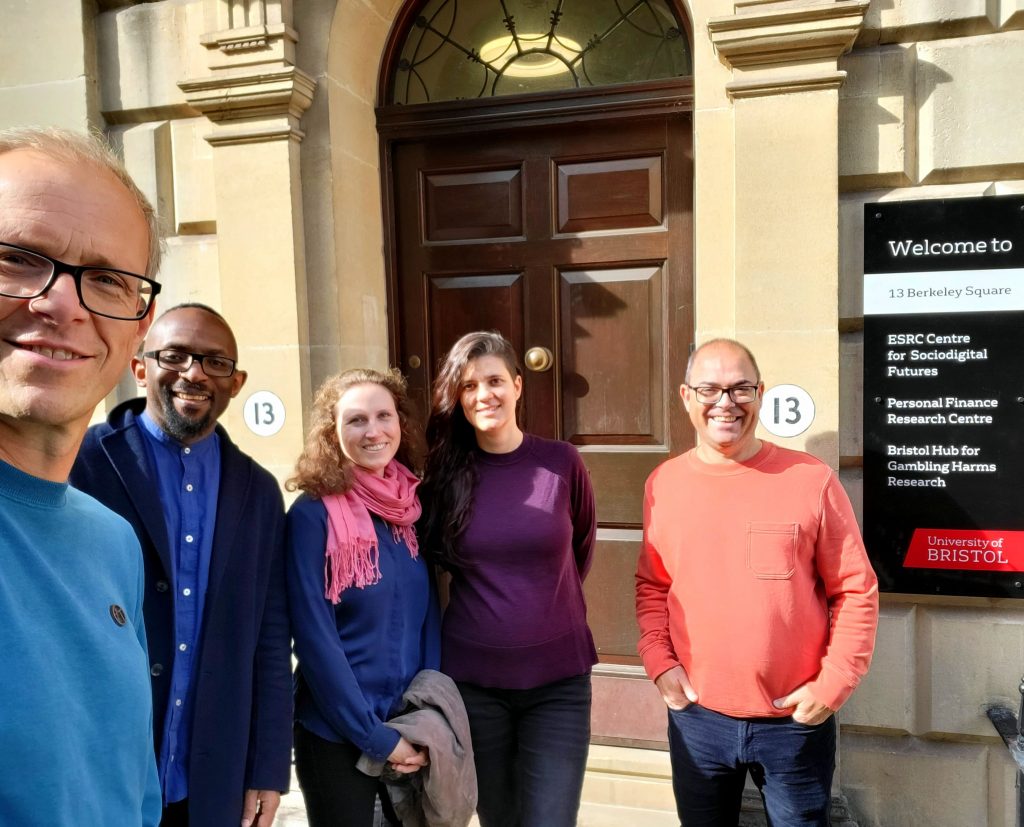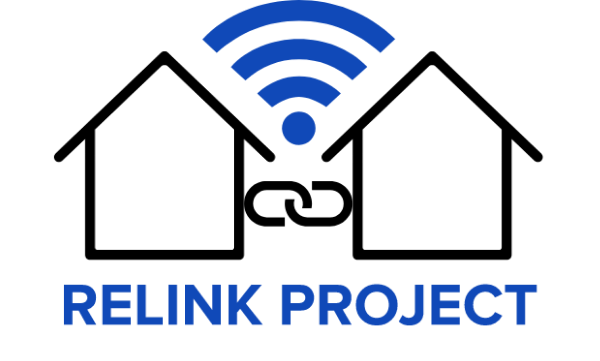As part of international outreach activities, four researchers from the RELINK project, Helene Teigen, Dag Slettemeås, Cristina Paupini, and Henry Mainsah visited our international project the University of Bristol’s Centre for Sociodigital Futures (CenSoF). We were hosted by professors Dale Southerton and Susan Halford, the Centre’s co-directors. The Centre for Sociodigital Futures is an international centre of excellence for sociodigital futures research and collaboration. Through strategic collaborations the centre aims to build capacity to identify, experiment with and utilize the potential of sociodigital future-making practices to support fair and sustainable societies.

Our interest in the theme of this second meeting, ‘digital platforms, markets and commodification’, builds on past and present SIFO research connecting the development of ‘smart homes’ to the notion of increasing ‘consumer surveillance’ in commercial markets, and consumers understandings of digital engagements, privacy, and surveillance. The increased dataification of everyday life through the harvesting, analysis, sale, and use of consumer data, is leaving consumers continuously tracked and monitored, even in non-market everyday situations. In this regard, SIFO has in previous research examined perceptions and experiences of the ‘surveillance economy’ among Norwegians and how consumers weigh benefit/risk-dilemmas and their own capacity to navigate and consent in surveillance contexts. SIFO has also developed recent research on social media and gaming particularly among children and youth. Our interest in this stems from the fact that although social media and gaming are an integral part of youth culture, previous research has not sufficiently treated social media and gaming platforms as commercial marketplaces designed to appeal to young people. A cartography of a of social media and gaming platform monetization designs and the corresponding new consumption practices, SIFO researchers believe, is a good vantage point for understanding the role of these platforms as commercial marketplaces. SIFO, interest in the theme connects to ongoing work on digital food platforms. Our research has covered how digital food platforms are being used by people embedded in everyday life, food practices, and the consumption and interactions within platforms.
Most of the attendees at this second meeting had attended the meeting on creative methods from the previous day. The came from different parts of Bristol University such as Bristol Digital Futures Institute (BDFI), the Department of Computer Science, the School of Management, and the Department of Theatre.
We were intrigued to hear about Raffaello Rossi from the Bristol University’s School of Management’s work on the use of gambling advertising on social media and the effects of gambling advertising to young people, and his advocacy work towards policymakers and on behalf of consumers, particularly children and young persons. Raffaello’s colleague, Ana Javornik, also interested us with her work on immersive technologies, with a particular interest in the use of augmented reality in commercial contexts, as well as consumer perception of immersive technologies and consumer well-being, using experiments and user studies. What differences do these augmented technologies play in people’s self-perceptions and identities, her research asks. Emma Slade, who is part of the Bristol team participating the Relink project, listed among her research interests, security related devices in the smart home, consumer understanding of smart products, consumer wellbeing, ethics, market inclusion, and participation in markets.
From BDFI, Jessica Ogden told us about here research on the role of archivists and archival technologies in shaping contemporary Web history, the invisible labour involved in the creation and maintenance of web and data archives, and the power, politics, and ethics of ‘saving the Web. Her BDFI colleague, Devika Narayan, presented her research interest broadly covering the changing structure of markets, new digital platforms, and the emergent workplace structures that shape contemporary capitalism. She was particularly interested investigating the technological, organizational, and workplace shifts catalyzed by the rise of cloud computing platforms.
Towards the end, Dale, to summarize, made a list of issues that kept coming in the discussions, which cut across several peoples’ interests. These include the following:
What are markets and how do digital platforms change the nature and understanding of markets
What are the things being shifted into markets and what are the everyday practices that are being commodified through digital platforms things (such as wellbeing apps, dating, parenting apps etc.). What are digital platforms putting into the market-based economy?
- What are platforms – how are platforms made?
- Surveillance, privacy, tracking
- Security, vulnerability, risk, and trust
- Practices, language meaning by producers
- Ideals – ideal selves, ideal spaces., places to be in, ideal forms of community.
- Claims of accuracy and problematic uses of these
- The issue of choice and its contradictions
We rounded up the discussions by talking about how in todays’ digital society, concepts are reified as things and become reality, such as the notions, Internet of Things, the Metaverse, and the surveillance economy. We talked about ethical issues raised on big platform players. On the policy front, some underlined the need to understand what sorts of evidence gain appeal among regulators and the importance of translating research insights into compelling narratives.
